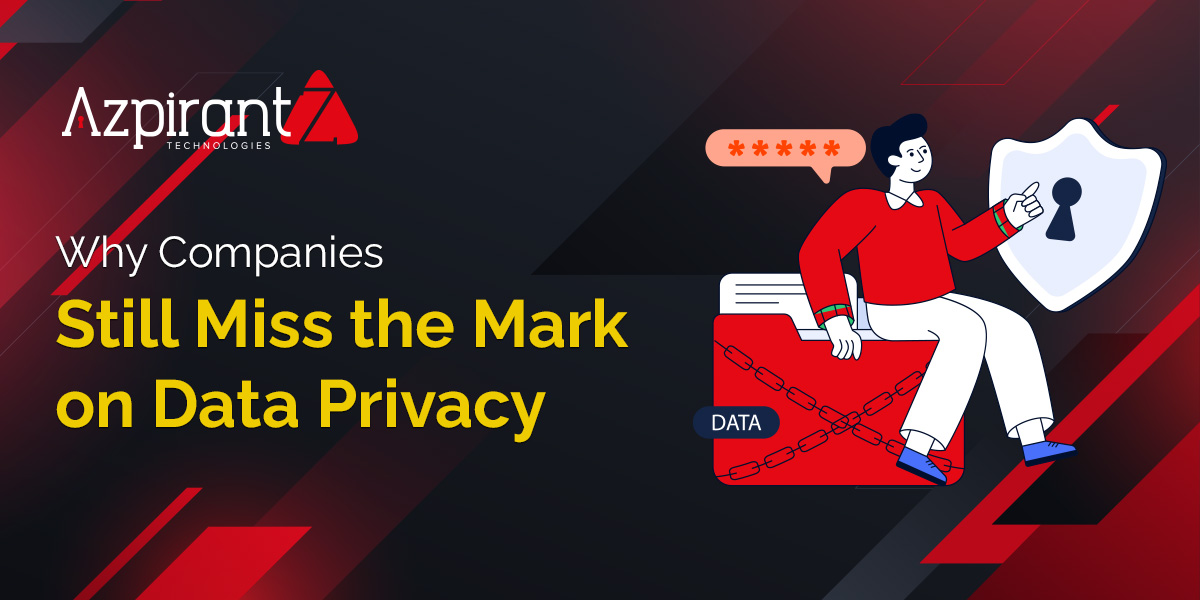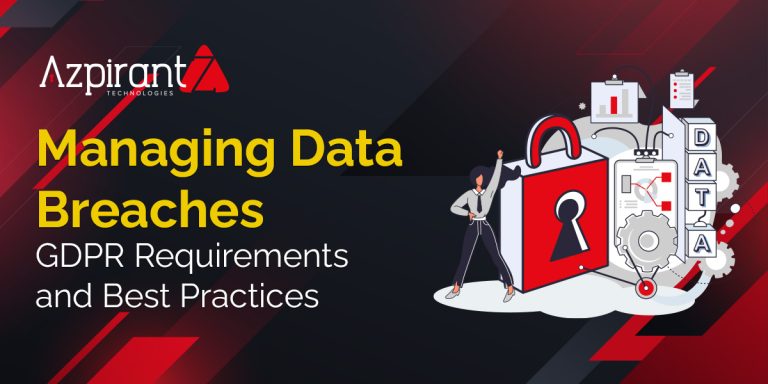Data Privacy Compliance: Where Companies Go Wrong
In the last decade, data privacy has moved from a regulatory commitment into a strategic necessity. With consumers becoming more aware of their data rights and the regulatory landscape becoming more rigorous worldwide, organizations are heavily investing in privacy. Yet, despite the increased spend on tools, personnel and legal capabilities, most businesses are still struggling to be fully compliant.

This article explains the underlying reasons why and highlights some of the challenges of the implementation of the General Data Protection Regulation (GDPR) and the California Consumer Privacy Act (CCPA), as well as the new surge of data protection laws in the Middle.
At most businesses, spending on privacy is reactive. Businesses race to resolve enforcement actions or bridge gaps found in audits. This can result in gradual fixes – ‘point’ tools that are not integrated strategically, or policy documents that are rarely turned into action.
Compliance, however, is not simply a function of budget expenditure. It requires end to end alignment across legal, process and technology dimensions.
1. One-Size-Fits-All Compliance Models
Many organizations mistakenly implement a single framework, usually GDPR or CCPA, and attempt to upgrade other regional requirements into that model. This approach ignores the fact that every regulation has exceptional definitions, scope, and obligations.
- GDPR emphasizes purpose limit, legal basis for processing, and data subject rights.
- CCPA focus more on data sales and their disclosures, opt-out rights, and transparency.
- Middle East laws, such as the UAE’s Personal Data Protection Law & Saudi Arabia’s PDPL, incorporate strict consent based requirements, data localization, and sector nuances.
A static approach often leads to operational blind spots and regulatory non-compliance at the local level.
2. Incomplete Data Discovery and Mapping
An accurate and continuously updated data is foundational to privacy compliance. Yet there are many organizations lack visibility into:
- What type of personal data is collected
- Where the data is stored or processed
- Who has to access the data internally and externally
- How long it is retained
Without comprehensive data mapping, it is impossible to respond to Subject Access Requests (SARs), enforce retention policies, or detect unauthorized data sharing.
3. Over-reliance on Tools Without Governance
Technology plays a critical role in managing privacy, from consent collection platforms to breach detection systems. However, deployment of tools without embedding privacy governance into the organization often leads to policy violations and inconsistent practices.
Key failures include:
- Lack of privacy impact assessments (PIAs) for new initiatives
- Limited training for business units handling personal data
- Absence of a formal data protection governance structure
Privacy must be treated as an operational principle, not a technology layer.
4. Handling of Cross-Border Transfers
Cross-border data transfers remain a legal and operational issue. For example:
- GDPR requires standard contractual clauses (SCCs) and transfer impact assessments by following the Schrems II judgment.
- Middle East jurisdictions increase restrict outbound transfers unless specific security guarantee are met or regulatory approvals are obtained.
Many companies, especially with cloud-based or decentralized infrastructures, continue to operate in violation with these requirements—often unintentionally—due to lack of central oversight.
5. Inability to Keep Pace with Regulatory Change
The global privacy landscape is evolving rapidly. In addition to established regulations, new laws are emerging:
- India’s Digital Personal Data Protection Act introduces new obligations around consent, breach reporting, and data fiduciaries.
- Several U.S. states, including Virginia, Colorado, and Connecticut, have enacted state-specific privacy laws with varying scopes.
- Middle Eastern countries like Bahrain, Qatar, and Oman are enacting or modernizing privacy laws inspired by GDPR.
Organizations without a dynamic regulatory intelligence function often find themselves non-compliant simply due to outdated assumptions.
The Middle East has traditionally lacked regulation on data privacy but the region has been making some interesting moves:
- Applicability: Public/Private: The PDPL (Federal Decree-Law No. 45 of 2021) is applicable to public and private entities.
- Saudi Arabia’s PDPL, which comes under the control of the SDAIA, has very limited rules on data transfer and registration for certain forms of processing.
- Qatar and Bahrain have enacted laws with heavy burdens on controllers and processors of personal information.
For MNCs conducting business in these regions, compliance with the cultural, language and legal subtleties of these statutes is no longer discretionary.
Although many are facing challenges, some are managing to tread this difficult environment. Their strategies include:
- Building Privacy by Design into the development of products and the rollout of services
- Developing and maintaining live data inventories through automated discovery tools
- Setting up multi-disciplinary privacy governance boards
- Adopting dynamic compliance frameworks that update with changes to regulations
- Consistently auditing third-party vendors and holding them accountable with data processing agreements
They consider privacy as a business enabler, not as a cost center, closely linked to brand reputation and customer trust.
Privacy global compliance is not a program to be achieved, it’s an ongoing program of strategic alignment, cultural change and regulatory agility. More spending is necessary, but not enough. Success is determined by how effectively organizations operationalize laws into action controls, enforce compliance, and evolve.
Ultimately, it’s those companies that treat privacy as a business value — not merely a legal requirement — that will thrive in the new data economy.
This blog post is perfectly aligned with Azpirantz’s core services, especially their “Data Protection & Privacy Consulting” offerings.
Here’s a strong, keywords-enriched, and benefit-driven Call to Action (CTA) paragraph that fits naturally at the end of your blog, drawing directly from the challenges you’ve highlighted and Azpirantz’s solutions:
The complexities of global data privacy compliance in 2025 demand a proactive, integrated strategy, not just increased spending. If your organization is facing challenges with one-size-fits-all compliance models, incomplete data discovery and mapping, ensuring cross-border data transfer legality, or keeping pace with the rapidly evolving regulatory landscape across regions like the Middle East, India (DPDPA), and California (CCPA), Azpirantz provides the expert guidance you need.
We specialize in helping businesses establish robust data governance frameworks, implement Privacy by Design principles, and navigate specific requirements like consent-based processing and data localization. Our comprehensive Data Privacy Consulting services are designed to move you beyond reactive fixes, fostering a culture of privacy that enhances customer trust, strengthens your brand reputation, and secures your place in the new data economy.
Ready to achieve sustainable and authentic data privacy compliance?
Explore Azpirantz’s dedicated Data Privacy Consulting Services and partner with us to transform your privacy challenges into a strategic business advantage.
*The content is released by Azpirantz Marketing Team.
We're Here To Help


